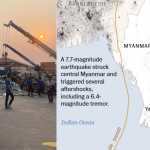A reader’s letter sent to FMT from a concerned medical professional and citizen of Malaysia highlights an issue to the health minister following the death of someone he knew that day, someone whose time had come.
He noted that this person had died in one of the minister’s hospitals, alone, not due to a lack of family and friends or concerned relatives, but because of the healthcare system and the care that the deceased had not received.
He clarifies that this is not an accusation, as he had been part of the same healthcare system since his time as a houseman and the decades spent within the public healthcare system, witnessing both its strengths and weaknesses from the inside. He said that he might even have taught the very people who had now denied a patient his rights.
Addressing the minister directly, the reader acknowledged that the minister is trying his best to revamp the entire healthcare system, from issues affecting housemen to those affecting GPs.
However, he felt compelled to raise an issue symptomatic of the current public healthcare system: the treatment of patients labelled DNR (Do Not Resuscitate).
He expressed deep concern, shared by many in the medical field and families of patients, about the increasing worry surrounding the DNR label. While everyone knew what it meant—medical students understood the concept, and families of affected patients were informed—there was a nagging feeling among both medical professionals and the public that the DNR label was increasingly misunderstood and often misapplied.
He said that he is aware of all the health ministry’s directives and SOPs related to DNR and clarifies that he is not questioning their credibility but is concerned about the implementation of these directives within busy hospital wards.
He understands that a DNR order allows individuals to choose whether or not they want cardiopulmonary resuscitation (CPR) in an emergency and that it is specific to CPR, not including instructions for other treatments like analgesics, other medication, or nutrition.
He points out that the DNR order is a legally binding document that, if correctly implemented, ensures end-of-life medical care is aligned as closely as possible with patients’ religious beliefs, needs, and desires.
The letter emphasised that DNR is intended to mean that in the event of cardiac or respiratory arrest, no resuscitative efforts should be made, not that the patient should be neglected, denied care, or left to die alone and unattended.
However, he asserts that the reality in some of the minister’s hospitals is that DNR sometimes means minimal care and waiting for the patient to die.
He recounts witnessing in the last few days how his friend had been bypassed for basic medical attention, his intravenous drip allowed to run dry unnoticed, his bed sores getting worse, his monitors not calibrated well, and the alarm constantly ringing without response.
He feels that his friend’s physical needs were unmet, and he is left in discomfort, dying in silence and without dignity. He adds that when relatives questioned the lack of care, they were asked why they had agreed to the DNR and why they didn’t withdraw it.
The writer expressed a desire to believe that this abandonment of a DNR patient is not intentional or due to malice.
He suggests that it might be due to a lack of ability for some healthcare workers to understand the difference between “not resuscitating” and “not caring,” or perhaps a lack of awareness of the comprehensive Malaysian guidelines for ensuring end-of-life care upholds patient dignity, comfort, and ethical standards.
Regardless of the reason, he feels that his friend had been abandoned by those who had vowed to do no harm in the weeks before his death.
The letter stressed that a DNR patient is still a human being who deserves comfort and attention, stating that this situation is a failure not only of communication but also of policy and implementation.
He suggests that if the minister had the time to speak to his friend’s family, he would realise that while they might not have wanted their loved one intubated, defibrillated, or sent to the ICU, they still wanted his pain controlled, his thirst quenched, his family nearby, and his final days filled with dignity—all of which were denied to his friend.
The writer then asked why these families did not complain, suggesting that people often did not voice their complaints after the death of a loved one in a hospital for several complex and deeply emotional reasons.
This would include being overwhelmed by grief, being unsure if anything went wrong, feeling it would not change the outcome, cultural beliefs, respect for healthcare workers, fear of being ignored or judged, and not knowing their rights. Often, they just wanted peace and closure rather than clarity at the expense of conflict.
Therefore, the writer concludes that all is certainly not right within the minister’s realm and suggests it might be time to take a leaf out of Caliph Harun al-Rashid’s playbook, who is known for going out in disguise to listen to his people’s concerns firsthand.
He feels that this connection with the community is seemingly lacking in the minister’s hospitals and finds it worrying.
The letter calls for a paradigm shift in hospitals that reaffirms the humanity of every patient, especially those approaching death.
It reminds the minister that “Primum non Nocere” (first do no harm) also means not neglecting or abandoning patients and not forgetting that silence and inaction in the face of suffering could also be a form of harm.
He argues that the measure of a healthcare system is not just in terms of lives saved but also in how it cares for those seeking solace and dignity at the end of their lives.
He clarifies that he is not asking for clear protocols, a national policy on palliative care, or training in palliative care, as these already exist. However, he is asking for more compassion and better care for those who choose not to be resuscitated, urging that they be treated with respect and care and not abandoned to die alone.
The letter concludes with a plea to the minister to lead not just a policy change but a moral one, stating that he, along with many others in the medical profession and civil society, are ready to support such a move, as his friend had been denied dignity in his death in one of the minister’s hospitals, and this should not happen again to anyone else.
-BTS Media



